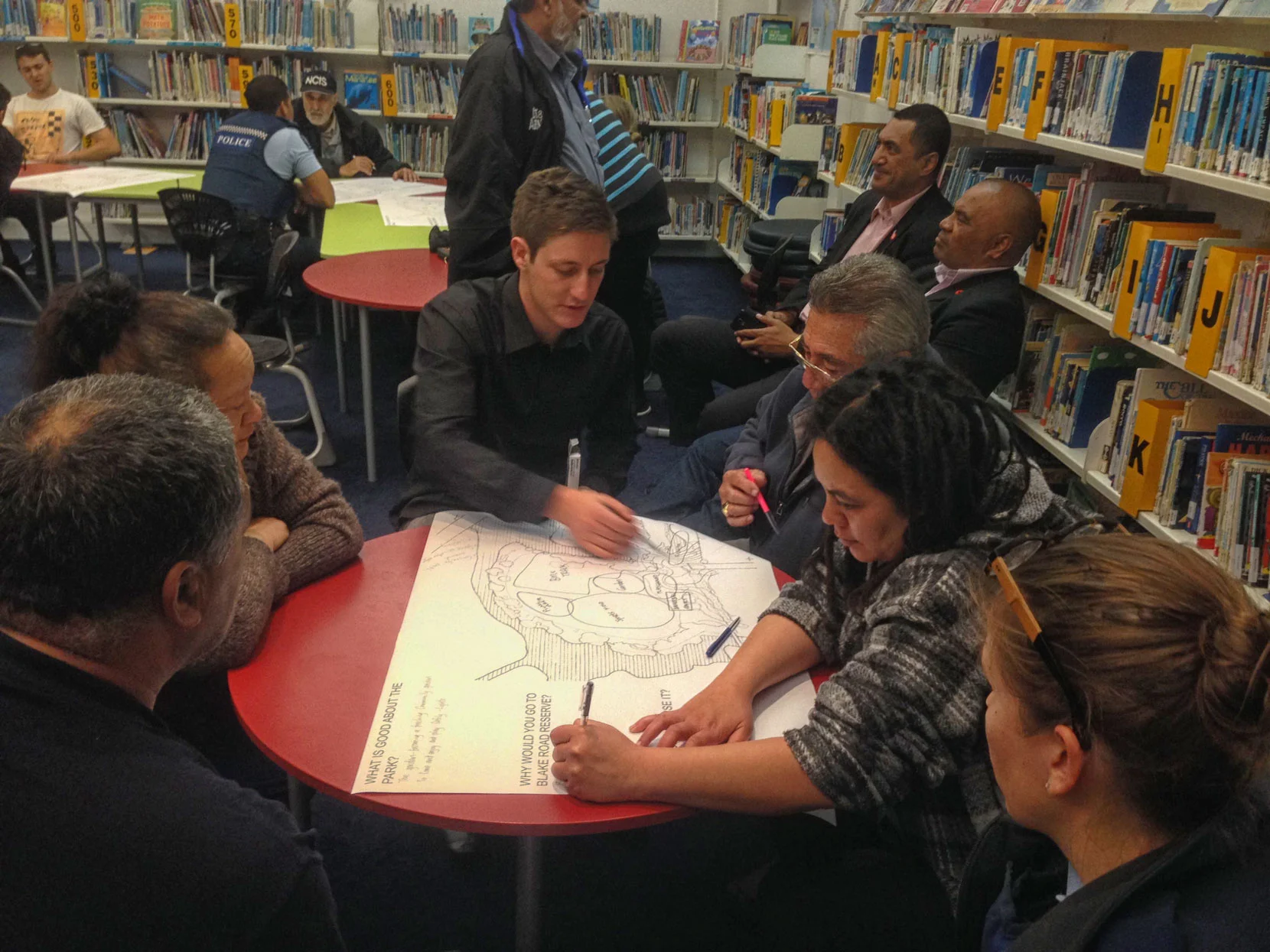
Pānui and Articles
A LANDSCAPE CODE OF PRACTICE
Landscape policy in New Zealand is at a critical juncture as the Ministry for the Environment requests quotes for the development of a Code of Practice for Landscape. This paper briefly explores the legislative background that sets the context for the Code proposal. It then responds to the Request for Quotes (RFQ) in relation to bicultural understandings of landscape, and to the dual environmental impacts of climate change and increasing tourism. It suggests that the RFQ’s focus on “outstanding natural landscapes” framed to specifically exclude character and cultural aspects indicates that the Code will perpetuate current practice that compartmentalises “nature” and “culture” rather than addressing their confluence.
PEOPLE AND PARKS
In New Zealand’s largest city, a pioneering project is underway to reconnect a community with its local park. The initiative, known as the Blake Road Reserve project, is part of Auckland Council’s ‘Adopt a Park’ programme. It explores how to connect the recreation industry with the community through the re-creation of a public space.
LANDSCAPE TRAJECTORIES: SEA LEVEL RISE AND FUTURE LANDSCAPES
Looking out over a quiet sea lapping the shore on a sunny day, it is almost inconceivable to think that it is inexorably rising. The globe is locked into a future of sea level rise of anywhere between 30 cm and 1 metre by 2100, and possibly much higher by that date, if ice sheets in Antarctica and Greenland melt rapidly. New Zealand, with the ninth or tenth longest shoreline of any nation (by most measures), and a small population that loves living near the coast, cannot afford to ignore this looming problem.
URBAN BIODIVERSITY OR URBAN DESERT?
How can we integrate better with our environment on an urban level? We fill awkward spaces that cannot be used for housing, or a section of grass with trees per head of population. This is often how a lot of our parks came into being, a very human activity-driven allocation process.








